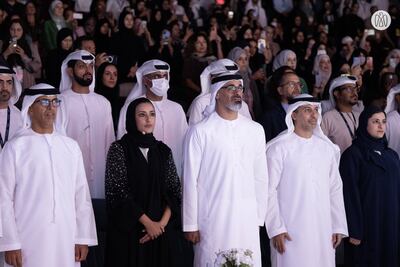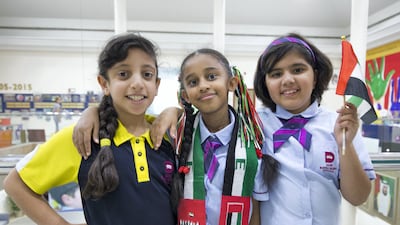It is important to raise strong third-culture children in the UAE, a country that is home to more than 200 nationalities, a forum in Abu Dhabi heard on Wednesday.
Held at the Etihad Arena, Parenthood: The Unconference discussed the best ways to raise children in the modern world, especially those who have left their home countries to live in a multicultural place like the UAE.
Coined by the American sociologist Ruth Useem in the 1950s, the term “third-culture children” was used for expatriate children who spend their childhood in foreign countries.
At its opening session moderated by CNN’s managing editor Becky Anderson, Sarah Al Amiri, Minister of State, bestselling author and psychologist Dr Shefali Tsabary and Bostwana’s first lady Neo Masisi discussed ways to raise third-culture children in a globalised world while retaining their identity.
author
The panel talked about how many children are faced with an identity crisis and the challenges that parents go through in helping them value their own religion, culture and language while accepting others.
Ms Al Amiri said it was important to talk to children about the world around them, diversity and how that makes this world a special place.
Dr Tsabary said children should not become detached from their own culture but it was important to celebrate occasions and festivals in other people's lives.
"In their formative years, children connect better with the identity they were born with, it's like an inner connection but over the years they lose it due to external pressures that come with growing up in a melting pot of cultures," she said.
“As parents, we face challenges. All of us have been exposed and we expose our children to so many cultures.

"So on one hand, we want our children to be global citizens but at the same time, we feel a little worried that they're not a part of our culture.
“We love the fact that our children are truly international but we also don't really like it.”
She said some parents did not allow their children to take part in other people's festivities.
"Our children are living in different times than us. They are being defined in a way that we have no idea about and that's threatening to us. But we have to trust the process,” she said.
Speaking of the seven mistakes of modern parenting, author Hal Runkel, said one of them was not allowing children to grow.
“The world is not completely safe and never will be," he said
"Our anxiety says to bubble wrap them and keep them safe and young for as long as possible.
"That's not necessarily what our principals say. Instead of saying, let's keep them safe, how about we make it a priority to make them strong?”
Other mistakes include screaming, overscheduling, using technology to monitor children all the time and self-sacrifice.
“I wish every parent in the world to learn that our job is not to manage their behaviour but to help them learn to manage so they can become responsible adults,” Runkel said.
The event was organised by the Abu Dhabi Department of Education and Knowledge, and opened by Sheikh Khaled bin Mohamed, chairman of the Abu Dhabi Executive Office and member of the Abu Dhabi Executive Council.
It was also attended by Dr Mugheer Al Khaili, chairman of the Department of Community Development; Sara Musallam, Minister of State for Early Education and Chairperson of the Federal Authority for Early Education, and Dr Ahmad Al Falasi, Minister of Education.

